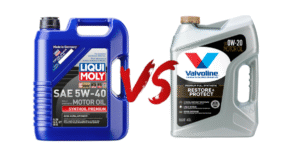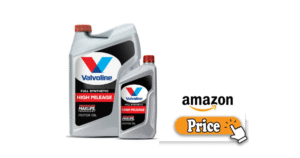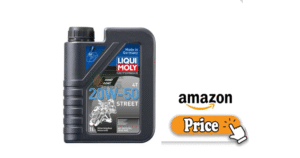Choosing the right engine oil is crucial for maintaining your vehicle’s performance and longevity. Two prominent names in the automotive lubricant industry are Liqui Moly and Valvoline. Both brands have their unique strengths and loyal customer bases. In this article, we’ll delve deep into a comprehensive comparison between Liqui Moly and Valvoline, exploring their histories, product offerings, performance metrics, and user experiences.
In this article, we’ll delve deep into a comprehensive comparison between Liqui Moly and Valvoline, exploring their histories, product offerings, performance metrics, and user experiences.
What I Like
Liqui Moly
- German Engineering Excellence: Liqui Moly, founded in 1957 in Ulm, Germany, is renowned for its high-quality oils, lubricants, and additives. The brand’s commitment to quality has made it a favorite among European car enthusiasts.
- Advanced Additive Technology: Liqui Moly’s oils often incorporate molybdenum disulfide (MoS₂), which provides superior wear protection and reduces friction.
- Extended Oil Change Intervals: Some of Liqui Moly’s synthetic oils can last up to 15,000 miles between oil changes, offering cost-effective maintenance.
Valvoline
- Rich Heritage: Valvoline’s history dates back to 1866, making it one of the oldest lubricant brands in the world. Its long-standing reputation speaks volumes about its product reliability.
- High-Mileage Formulations: Valvoline offers specialized oils, such as the High Mileage with MaxLife Technology SAE 5W-30 Synthetic Blend, designed to rejuvenate aging engine seals and reduce oil consumption.
- Affordability: Valvoline’s products are generally more budget-friendly, providing good value without compromising on quality.
👉🏿👉🏻 Check Latest Price and Offer at Amazon 👈🏻👈🏿
What Could Be Better
Liqui Moly
- Price Point: Liqui Moly’s premium quality comes at a higher cost compared to other brands, which might be a consideration for budget-conscious consumers.
- Availability: While Liqui Moly has a strong presence in Europe, its products might not be as readily available in all regions, potentially limiting accessibility for some users.
Valvoline
- Synthetic Blend vs. Full Synthetic: Some of Valvoline’s offerings, like the High Mileage with MaxLife Technology, are synthetic blends rather than full synthetic oils, which might not provide the same level of performance in extreme conditions.
- Additive Technology: While effective, Valvoline’s additive technology might not be as advanced as Liqui Moly’s MoS₂-based formulations, potentially resulting in slightly less wear protection.
My Personal Experience
Having used both Liqui Moly and Valvoline in different vehicles over the years, I’ve observed distinct differences. Liqui Moly’s oils, particularly the Molygen series, have consistently provided smoother engine performance and reduced oil consumption.
The engine runs quieter, and there’s a noticeable improvement in acceleration. On the other hand, Valvoline’s High Mileage oil has been a reliable choice for older vehicles, effectively reducing leaks and improving overall engine cleanliness.
Design
Liqui Moly
Liqui Moly’s product design reflects its German engineering roots. The packaging is practical, with clear labeling and easy-to-use containers.
The inclusion of MoS₂ gives the oil a distinctive grayish color, indicating the presence of solid lubricants that provide emergency running properties.
Valvoline
Valvoline’s packaging is user-friendly, featuring ergonomic handles and spouts that make pouring easier. The labeling is straightforward, providing clear information about the oil’s specifications and intended use. 👉🏿👉🏻 Check Latest Price and Offer at Amazon 👈🏻👈🏿
👉🏿👉🏻 Check Latest Price and Offer at Amazon 👈🏻👈🏿
Performance
Liqui Moly
Liqui Moly’s oils are engineered for high performance. The MoS₂ additives reduce friction, leading to better fuel efficiency and engine longevity. Users have reported extended oil change intervals and improved engine cleanliness.
Valvoline
Valvoline’s High Mileage oils are formulated to address the needs of older engines. The inclusion of seal conditioners helps prevent leaks, while additional detergents clean sludge and deposits.
While not designed for extended intervals like Liqui Moly, Valvoline provides reliable performance for standard maintenance schedules.
Build Quality
Both brands maintain high manufacturing standards. Liqui Moly’s products are produced in Germany, adhering to strict quality control measures.
Valvoline, with its extensive history, has established a reputation for consistent quality across its product range.
Alternative Options
While Liqui Moly and Valvoline are excellent choices, other reputable engine oil brands include:
- Mobil 1: Known for its advanced full synthetic oils that offer excellent performance and protection.
- Castrol: Offers a wide range of engine oils, including the popular EDGE series with Fluid Titanium Technology.
- Amsoil: Provides premium synthetic oils with high Total Base Numbers (TBN), offering extended protection.
Read More: Quaker State vs Valvoline: A Comprehensive Comparison
Final Thoughts
Choosing between Liqui Moly and Valvoline depends on your vehicle’s needs and your maintenance preferences.
- Choose Liqui Moly if you:
- Own a high-performance or European vehicle.
- Prefer extended oil change intervals.
- We are willing to invest in premium quality for enhanced engine protection.
- Choose Valvoline if you:
- Have an older vehicle requiring high-mileage formulations.
- Seek a cost-effective, reliable engine oil.
- Prefer products that are readily available and easy to use.
Both brands have their merits, and your choice should align with your vehicle’s requirements and your personal preferences.
FAQs:
Q1: Can I switch between Liqui Moly and Valvoline oils?
Yes, as long as the oil meets your vehicle manufacturer’s specifications, you can switch between brands.
Q2: Are Liqui Moly oils suitable for non-European cars?
Absolutely. While Liqui Moly is popular among European car owners, its products are compatible with a wide range of vehicles.
Q3: How often should I change my oil with Liqui Moly?
Some Liqui Moly synthetic oils can last up to 15,000 miles, but always follow your vehicle manufacturer’s recommendations.
Q4: Is Valvoline’s High Mileage oil only for older cars?
While designed for older engines, it can also benefit newer vehicles experiencing leaks or oil consumption issues.
Q5: Which oil is better for extreme temperatures?
Liqui Moly’s synthetic oils excel in extreme temperatures due to their advanced additive technology.




